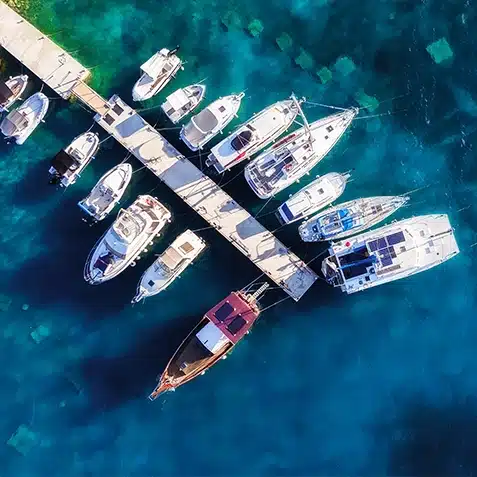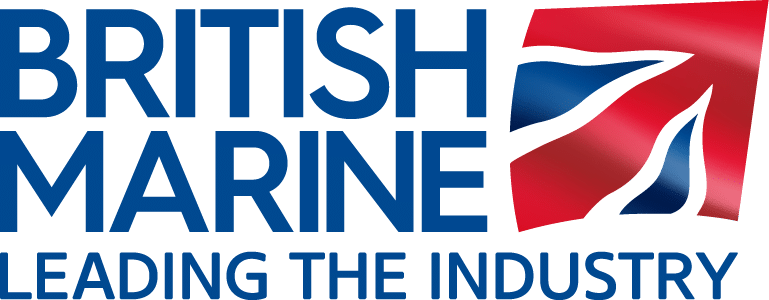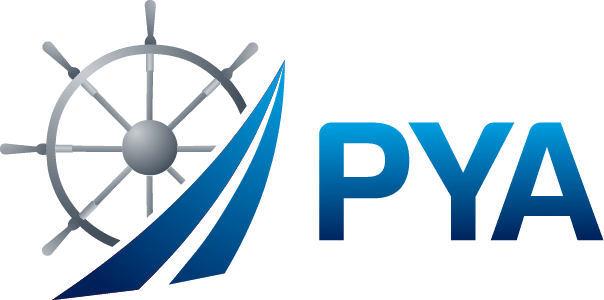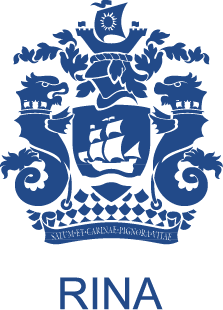Yacht Surveying Course
Diploma in Yacht & Small Craft Surveying
Yacht & Small Craft Surveying
This internationally recognised Yacht and Small Craft Surveyor course from the Maritime Training Academy provides the knowledge and skills needed to carry out surveys on yachts, small craft and other vessels.
Study online and learn how to identify structural and mechanical issues, assess best-practice compliance, and produce professional vessel reports required for insurance, finance, and sales.
Designed for professionals working in or entering the marine industry, this diploma supports careers in yacht surveying, vessel inspection, marine valuation, and insurance reporting.

Professional Yacht & Small Craft Surveying Qualification
Learn the skills required to inspect vessels, assess condition and produce professional survey reports for insurance, resale and compliance.
Contact us below to enrol today, or speak with our experienced course advisors.

Duration:
12 - 18 months
Learn at your own pace
Online Course:
Study from anywhere

Cost:
Diploma: £3,195
Certificate: £2,295

Recognised by: 
Diploma vs Certification
Choose the right path for your career:
Comprehensive Training: Covers vessel inspections, structural assessments, valuation reporting, sea trials and compliance checks.
Flexible Study Duration: 12 – 18 month depending when you enrol to the program, study online at your own pace, from anywhere in the world.
Marine Industry Career Opportunities: 100% Online, with access to our student learning portal
Long-Term Career Impact: Yacht Surveyor, Marine Valuation Specialist, Vessel Inspection Consultant, or Marine Claims Assessor.
Global Recognition: Our Diplomas are recognised by the University of Portsmouth and are supported by industry associations.
Assignments: One assignment is required to be completed and submitted at the end of each module, based on that particular subject.
Certification: you will receive a PDF Digital certificate (Printed Certificate Completion Pack available).
Final Examination: There will be a final examination upon completing and submitting all student assignments (exams are sat in April or October).
Post-Nominal letters: On passing the Diploma you can also use these letters after your name: MTA Dip YachtSurv
Digital Course Badge: Upon successful completion students will receive an exclusive course badge for use on business cards, LinkedIn profiles and website(s)!
Diploma - £3,195
A globally recognised qualification for careers in yacht and small craft surveying across the marine industry.
✔
✔
✔
✔
✔
✔
✔
✔
✔
✔
Certificate - £2,295
Specialist Surveyor Training without formal assessments, for those who do not require a recognised diploma.
✔
✔
✔
✔
✔
✔
Yacht & Small Craft Surveying Curriculum: 12 Modules
Learn how to survey GRP (fibreglass), steel, aluminium and wooden vessels with confidence. Understand how different materials respond to use, age and environment and how to identify structural or mechanical issues unique to each type of yacht or small craft.
Our vessel valuation training covers methods for assessing condition, market context and compliance, with clear guidance on how to justify and present findings. You’ll also learn how to conduct sea trials and build the judgment and technical knowledge needed to assess small craft professionally.
Structure
Level One – Diploma or Certificate
The course consists of 12 modules. All students are required to successfully complete and pass the module assignments. Diploma students will also be required to sit and pass a final examination.
Level Two – Practical – £1,000
Surveyor’s Log Book (SLB)
Level 2 consists of a Surveyor’s Log Book (SLB). Upon successful completion of the Level One Diploma, you have the option to move onto Level 2. As a surveyor under training completes each task, he/she gathers evidence to support the experience and learning gained, in a structured manner, guided by the Log Book. Once completed, the Log Book will be submitted to MTA for review.
Level Three – Peer Review – £1,000
Leading to a CoC issued by MTA
Upon successful completion of both the Level One Diploma and Level Two, you have the option to move onto Level 3. The MTA Peer Review is a detailed oral examination lasting between two to three hours and is graded on a pass/fail basis. The three-member Peer Review Committee will ask a series of questions to test the students practical and theoretical knowledge of surveying in their chosen specialist field. Successful completion of the Peer Review is required to achieve the MTA Certificate of Competency in the Yacht and Small Craft Surveying.
1. An Introduction to the Yacht and Small Craft Industry and the Role of the Yacht and Small Craft Surveyor
- The yacht and small craft industry
- Yachting regulation and safety
- The purchase of a yacht
- The law and yachts
- Health and safety for the marine surveyor
- Surveys and survey organisations
- The professional surveyor
- The yacht and small craft surveyor in specialist roles
- The yacht and small craft surveyor in practice
- Organising the survey
- What makes a good surveyor?
- Types of surveys
2. The Essential Basics of Carrying out a Yacht survey
- Types of survey
- The survey process
- The report and follow up
- The surveyor’s bag
- Risk assessments
- Attributes of good surveyor
3. Report Writing for Marine Surveyors
- Introduction
- The basis of reports
- Preparing for the report
- Report types
- Writing the report
- Touch typing
4. Running a Successful Yacht and Small Craft Surveying Business
- Running a successful yacht and small craft surveying business
- The business plan
- The value of your time
- Marketing your business
- Preparation – the swot analysis
- Finance
- Choosing your office
- Time management
- Challenges and solutions
5. Essential Law
- Introduction
- Legal concepts
- Maritime law
- Marine insurance and claims
- Table of cases
6. Surveying GRP Yachts
- Introduction
- History
- Basic fibreglass materials
- Resin
- Reinforcement
- Sandwich construction
- Building techniques
- How is a boat laid up?
- General nomenclature for FRP craft
- Building defects
- Failure modes of cored laminates
- Keels
- Osmosis
- Moisture meters
- Practical surveying of GRP craft
7. Surveying Steel and Aluminium Yachts
- Steel
- Aluminium
- Aluminium and steel – a comparison
- Design and fabrication of small steel and aluminium craft
- Structure
- Rudders
- Boat fabrication
- Corrosion
- Anodes and cathodic protection
- Protecting steel and aluminium
- Stress and associated faults
- Damage
- Surveys and surveying methods
8. Surveying Wooden Boats
- Introduction
- Wood as a construction material
- Wooden boat construction
- Degradation of wooden boats
- The wooden boat survey
- Case study – investigation into the sinking of wooden vessel on the River Thames
9. Surveying Yacht Engines and Systems
- Introduction
- Types of engine
- Engines
- Drive systems
- Exhaust systems
- Air conditioning
- Water systems
- Fuel systems
- Bilge pumps
- Gas system
- Electrical systems
- Safety equipment
- Limitations of a marine surveyor
10. Surveying Rigs and Sails
- Introduction
- A brief history
- Rig types
- Mast construction materials and fabrication techniques
- Rigging
- Health and safety in rig surveying
- Common rigging faults
- The surveyor’s tools for masts and rigging
- The limitations of the surveyor’s role in rig surveying
- Sails
- History
- Sail types
- Sail materials
- Methods of sail surveying
- The surveyor’s tools for sail inspections
- The limitations of the surveyor’s role in sail surveying
- Rig and sail accessories
- Deck hardware
11. Valuation Surveys
- Introduction
- Valuations
- Aspects of value
- Valuation methodology
12. Sea Trials
- Introduction
- Equipment
- Engine tests
- Steering tests
- Information recording and reporting
- Conclusions
Hear from our Students
Meet the Course Director
James Shepard
James Shepherd grew up sailing yachts and dinghies on the south coast of the UK, fostering a lifelong passion for sailing and small craft. This love of the sea led him to join the Merchant Navy, working through ranks and appointments he ultimately achieved his Master Mariner Unlimited licence and command shortly thereafter. He combines professional maritime discipline with a practical, owner-focused understanding of yachts and their operation, having restored his own Contessa 32 during periods of leave.
A keen sailor from an early age, James has extensive experience across a wide range of yachts, from classic racing boats to modern cruising yachts. He has competed in major offshore races including the Fastnet, Sydney–Hobart, and Transpac, and regularly sails both professionally and for pleasure. In 2023, he undertook an extended cruise aboard his own yacht, sailing from the south-west of the UK to France, Spain, and Portugal

Yacht & Small Craft Course FAQs
Find out more about the course with our FAQs below.
How do I become a yacht and small craft surveyor?
Gain the technical skills and certification through structured training in vessel inspection, compliance, valuation, and reporting. This course is delivered online and prepares you for work across the surveying, insurance, and compliance sectors.
What qualification will I receive from this marine surveyor course?
You’ll earn a diploma in Yacht and Small Craft Surveying, recognised internationally by professionals across the marine industry. This diploma qualifies you for roles in surveying, vessel valuation, and marine claims assessment.
Which types of vessels will I learn to survey?
Training covers GRP (fibreglass), steel, aluminium, and wooden vessels. You’ll learn how to assess structural integrity, common faults, and maintenance issues across all major small craft types.
Does a yacht and small craft survey include sea trials and valuation?
Absolutely. You’ll learn how to conduct sea trials, assess vessel performance, and produce valuation reports for finance, insurance, or resale purposes.
Can I study yacht surveying without marine industry experience?
Yes. The course is suitable for beginners as well as those transitioning from roles in brokerage, engineering, operations, or compliance.
Is a yacht and small craft surveying diploma recognised internationally?
Yes. The diploma is recognised across the global marine sector and supports careers in surveying, insurance risk assessment, and consultancy.
See our FAQ page for more questions answered about MTA courses.
Supported by:




Why Choose The Maritime Training Academy?

Flexible
Online learning allows you to study in your own time, at your own pace from anywhere in the world. This saves on travel and classroom costs and allows you to fit your studies around your job and progress your career.

Supportive
While the nature of distance learning is independent study, we recognise the importance of support. Students can contact us at any time during their course for assistance and our team of industry experts are always on hand for advice.

Expertise
We have over 50 industry experts writing, developing and advising on our course material. We truly believe that allowing students to tap into their expertise and knowledge is of the utmost importance to fulfil your dream career.
If you would prefer to complete this as a classroom-based course, please contact us.
